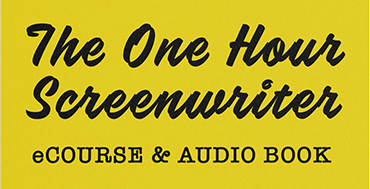The King’s Speech


The film tells the story of the unusual and very deep friendship between Prince Albert, the Duke of York (and later King George VI) played by Colin Firth and his Australian-born speech therapist, Lionel Logue, played by Geoffry Rush.
Prince Albert has a debilitating stammer which prevents him from speaking in public and makes any public interaction pure agony. All his life, he is able to retreat into the background and live in the shadow of his more polished, confident and gregarious elder brother Edward, Duke of Cornwall and Prince of Wales played by Guy Pearce.


Simpson was unacceptable because she divorced her first husband and was seeking a divorce from her second. She was still married when Edward proposed. Edward abdicates the throne in order to “marry the woman I love.”
With World War II looming in the background, The King’s Speech provides an interesting conflict of Character Types. We see the best and worst examples of the Power of Conscience and the Power of Idealism.
Albert is a Power of Conscience character. He rules by moral authority. Here he describes his power: If I am King, where is my power? Can I declare war? Form a government? Levy a tax? No! And yet I am the seat of all (moral) authority because they think that when I speak, I speak for them.


Albert must absolutely humiliate himself while with Logue and perform seemly ridiculous exercises that have him barking swear words, making unseemly trills and other noises, jumping around and flapping about in complete abandon. In making the leap of faith to let go of his stiff reserve and sense of propriety, Albert overcomes his impediment and is able to speak to and for his people during Britain’s “darkest hour.”
Albert’s emotional journey in The King’s Speech is very similar to that of his daughter, Queen Elizabeth II, played by Helen Mirren in The Queen. (I’ve written about that film here) The monarchs in each film are reserved, formal and rather retiring, shy and stiff. Each has to sacrifice his/her dignity and sense of propriety in order to do what their subjects need. In both cases, this need boils down to a speech.
Albert, as King George VI, must tell his people they are at war with Germany and rally them emotionally for the difficulties and sacrifices that lie ahead. Queen Elizabeth must address her subjects’ emotional needs after Princess Diana’s tragic death. The Queen believes that mourning is a private affair. She refused to speak publicly, until Tony Blair as played by Michael Sheen, convinces her that her subjects’ emotional needs must take preference over her own dignity, reserve and sense of proper conduct.


The proper formal Archbishop does his best to discredit Lionel Logue, because Logue doesn’t have the proper credentials. The therapist is an undignified colonial with no accredited training. For a brief time Albert is tempted to abandon his treatment.
.


These characters want to find their special place in the world, be extraordinary in what they do, be called to some great destiny (which certainly was the case here) or make a lasting artistic impression. They are misfits, mavericks and rebels.
Lionel Logue: (as Albert lights a cigarette) Please don’t do that.
Albert: I’m sorry?
Lionel Logue: I believe sucking smoke into your lungs will kill you.
Albert: My physicians say it relaxes the throat.
Lionel Logue: They’re idiots.
Albert: They’ve all been knighted.
Lionel Logue: Makes it official then.
Logue also insists on complete equality with the royal Albert. Like all Power of Idealism characters Logue believes in personal freedom and autonomy and is unwilling to bow to anyone.
Albert’s brother Edward displays the narcissistic, dramatic and self-involved aspects of the Power of Idealism character. He is consumed with his passionate affair with Wallis Simpson. He wants to be free and refuses to bow to duty, his advisors or the government ministers. Instead, he makes the bold operatic romantic gesture and abdicates his throne in favor of “the woman I love.” He leaves the throne to Albert who, in the end, was just what Britain needed.
The King’s Speech is a wonderful film with brilliantly drawn Power of Conscience and Power of Idealism characters in constant tension and conflict. Read the full article on The Queen here.




Create a visual map for a character’s emotional journey. Pull stories from character rather from rote story structure beats. Some of the largest international media companies, use this in story and character development.


A clear concise guide for writers and producers to have by their side as they embark on a project. It gives a really vital reminder of what is key for story success.

No comment yet, add your voice below!